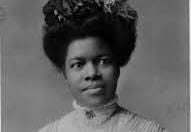
Introduction
Nannie Helen Burroughs (1879-1961) was a prominent African American educator, orator, religious leader, and civil rights activist in the early 20th century. Though not directly associated with womanism, Burroughs' teachings and writings contained elements that foreshadowed core womanist ideas related to the intersectionality of race, class, and gender. She was focused specifically on improving conditions for African American women.
Burroughs as Educator and Institution Builder
Burroughs centered much of her work around education as a means to uplift the African American community. She founded schools aimed at providing African American women access to industrial education and training. The National Training School for Women and Girls, founded in 1909, focused on training in areas like typewriting, nursing, maid services, and other practical skills [1]. Burroughs believed such training would help African American women support themselves and gain economic independence.
Her approach aligns with the womanist emphasis on empowering black women across lines of race, gender, and class. The school also incorporated religious and moral education, reflecting Burroughs’ view that spiritual development was intertwined with physical and mental development [2].
Burroughs as Civil Rights Leader
Nannie Burroughs was deeply involved in advocacy efforts around voting rights and ending discrimination. From 1920-1952, she presided over the Women’s Auxiliary of the National Baptist Convention [3]. Under her leadership, the organization campaigned against lynching, Jim Crow laws, and other racist policies aimed at disenfranchising the African American community.
Burroughs centered racial justice and collective uplift in her civil rights efforts. She also maintained a proto-womanist belief in the inseparability of racial and gender uplift, arguing that “if the women lift, the race must rise” [4].
Relevance for Womanist Thought
As an educator and activist focused specifically on empowering black women, Nannie Helen Burroughs’ work parallels core concerns in womanist theology. Her life and writings could provide valuable perspectives on:
• Approaches to moral, spiritual, and ethical development for African American women
• Strategies for black female institution building and communal empowerment
• Connections between racial justice efforts and women’s empowerment
Burroughs’ model of uplift through practical and religious education could serve as a resource for developing womanist approaches to individual and collective spiritual formation. Her tireless, long-term advocacy at the intersection race and gender also reflects an enduring model of building beloved community.
References
[1] Johnson, A.M. (2000). Nannie Helen Burroughs. Journal of Philosophy and History of Education, 50, 92-97. https://doi.org/10.54962/toj/1549827X.50.092
[2] Fairfax, J. (2004). Nannie Helen Burroughs and the education of black women. The Afro-American Woman: Struggles and Images, 97-108. https://muse.jhu.edu/book/11795
[3] McCray, C. (2011). Engaging Nannie Helen Burroughs’ public pedagogy as black feminist adult education. Adult Education Research Conference. https://newprairiepress.org/aerc/2011/papers/58
[4] Parks, F. (2018). Nannie Helen Burroughs: The black Goddess of Liberty. Journal of Feminist Scholarship, 15, 78-92. https://digitalcommons.uri.edu/jfs/vol15/iss15/8/



